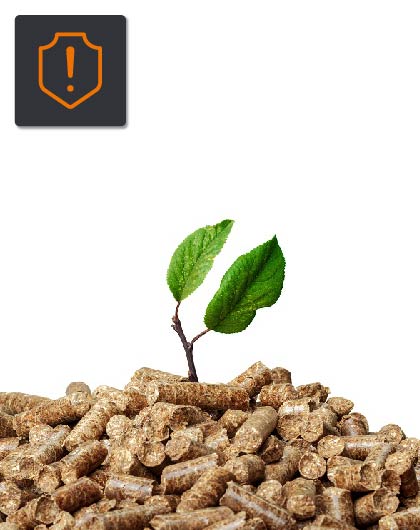ENplus® Statement
To address a series of misleading claims about the ENplus® certification scheme made in recent media publications, the ENplus® Management would like to clarify and explain the following:
ENplus® is a quality certification scheme, as such, its set of requirements and procedures aims at guaranteeing the pellet quality to the end-users. To properly assess that raw material is sourced from sustainably managed forests, the market relies on dedicated certifications where the raw materials is properly checked. Many of these third-party certification schemes are also assessed and approved by the European Commission for complying with the EU sustainability criteria.
The ENplus® Management strongly condemns illegal logging and any other illegal practices related to the pellet production. The ENplus® is an international certification scheme for pellet quality to actively combat fraud. As of March 2023, there are more than 930 identified and solved fraud cases, whilst the ENplus® blacklist provides information about more than 250 known actors at the pellet market that have abused the EN plus® trademark and misled the consumers.
Even though sustainability is not part of the scope of the certification scheme, ENplus® collects information about the origin of the raw material for statistical reasons and can confirm that for 85% of the certified pellet production, the raw material is residues from the wood-processing industries (EPC, 2020). Pellets are rarely produced of virgin wood, therefore, should be perceived as a solution contributing to the circular economy rather than a cause for deforestation.
When wood pellets are being used for bioenergy, they release CO2 that is part of the natural carbon cycle which therefore does not lead to an overall increase in the levels of CO2 into the atmosphere. The same amount of carbon emitted during the generation of bioenergy will be absorbed from the atmosphere as new trees grow. Cutting-edge technology in the latest generation of wood pellet appliances even has the capability of reducing air emissions, thus lowering pollution and improving air quality.

